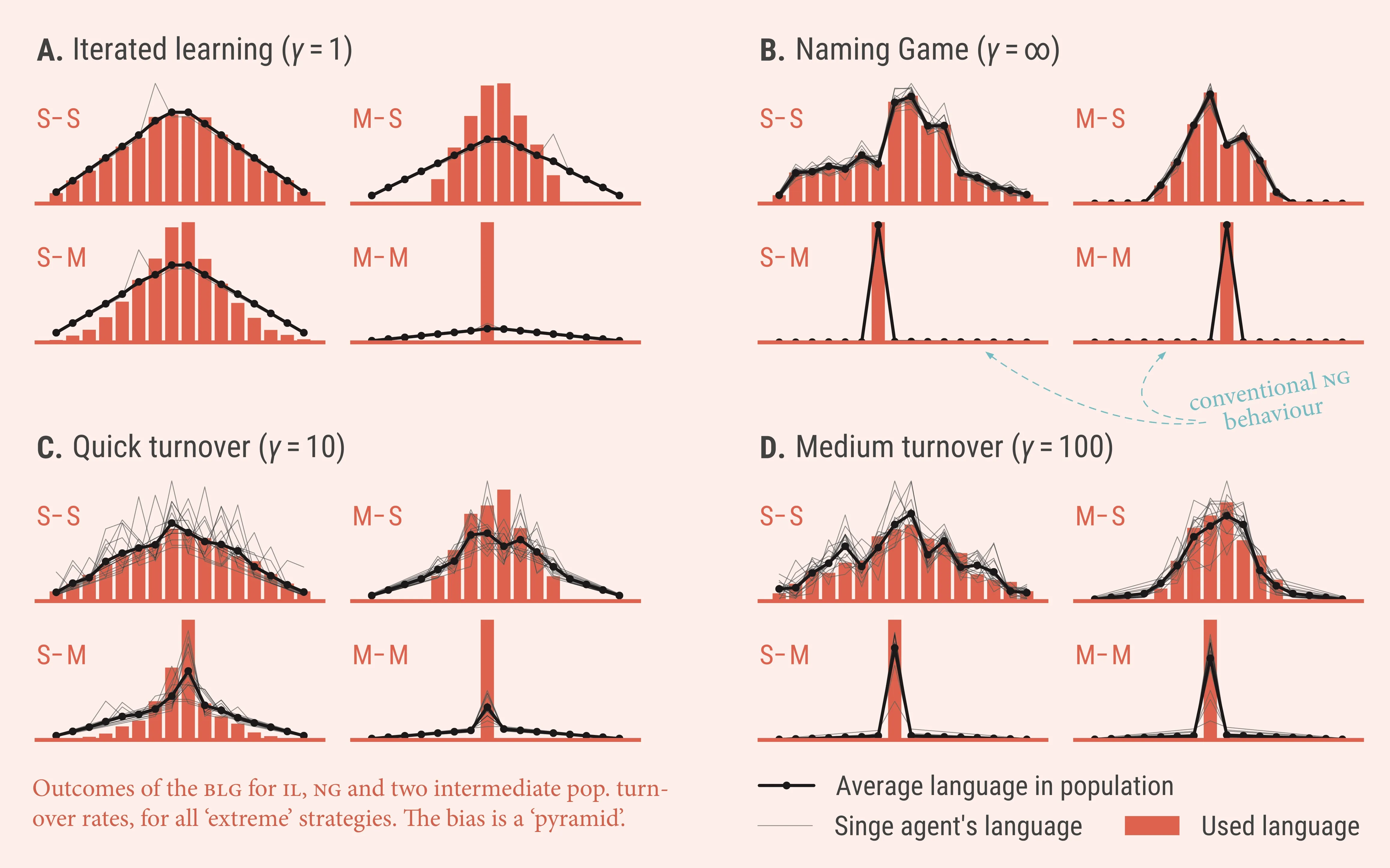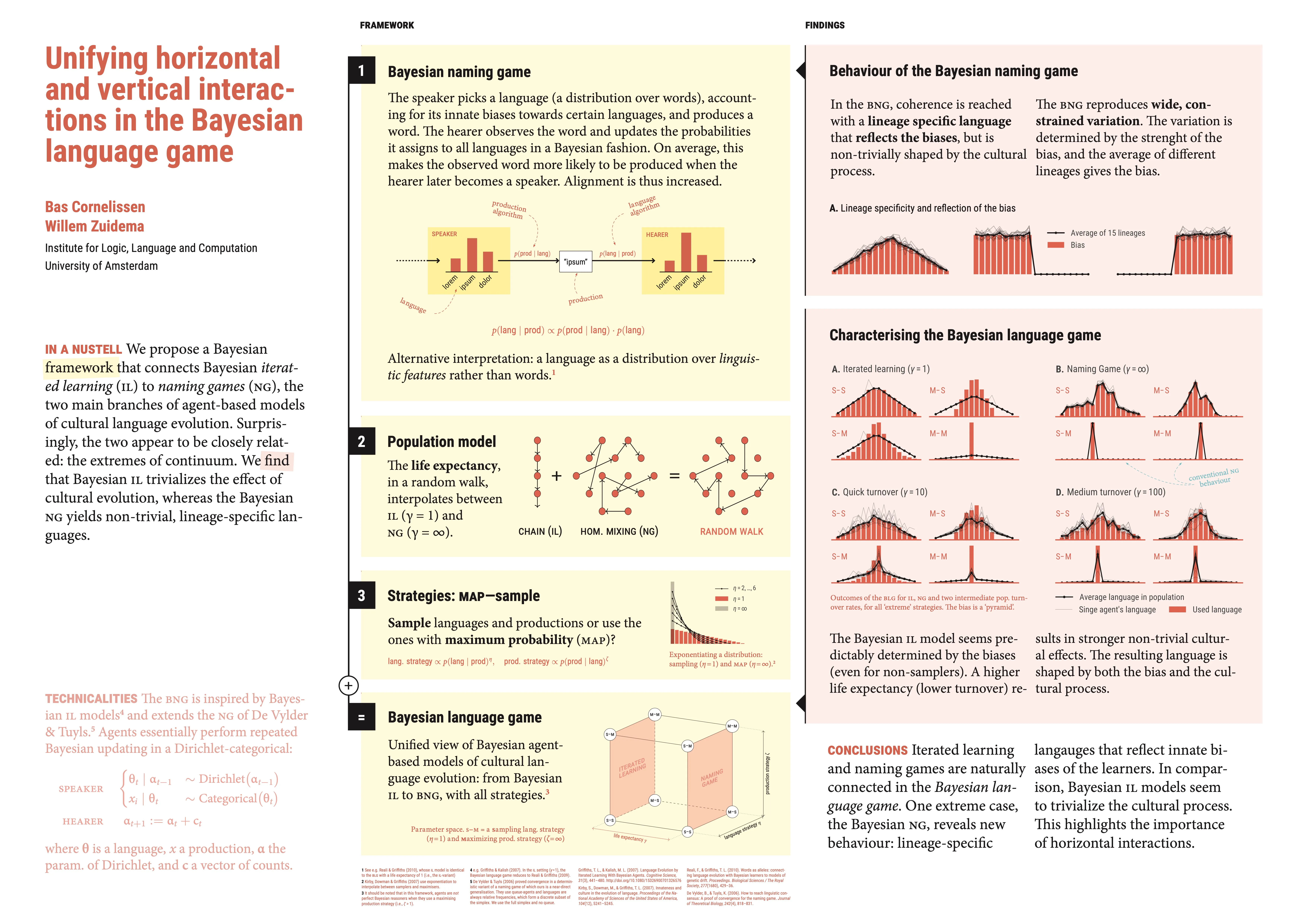

Human language is one of the most intricately structured communication system in the natural world. Over the last decades re- searchers in various fields have developed the idea that languages are primarily shaped by processes of cultural evolution, and that these pro- cesses can account for the structure of language. Computational mod- els play an important role in their arguments. This thesis asks what those models can teach us about cultural language evolution. To that end, the first part of this thesis connects the two main branches of agent-based models, naming games and iterated learning, in a new Bayesian language game. The game gives a unified view on the field and suggests a charac- terisation of the behaviour exhibited by the main agent-based models of language evolution. It moreover addresses shortcomings of earlier mod- els. We find lineage-specific languages reflecting the innate biases of the learners. The second part of this thesis aims to compare that behaviour with the evolution of actual language. Numeral systems are argued to be an ideal empirical test case for models of cultural language evolution. We revisit Hurford’s pioneering work on the modelling of the emergence of numeral systems, and discuss some further results.

Cornelissen, B. (2017). Bayesian Language Games: Unifying and Evaluating Agent-Based Models of Horizontal and Vertical Language Evolution [Master’s thesis]. University of Amsterdam.
📖 Master’s thesis • 🖼 Slides
Cornelissen, B., & Zuidema, W. (2017). Unifying Horizontal and Vertical Interactions in the Bayesian Naming Game. Poster presented at the workshop Minds, Mechanisms, and Interaction in the Evolution of Language.
📜 Poster